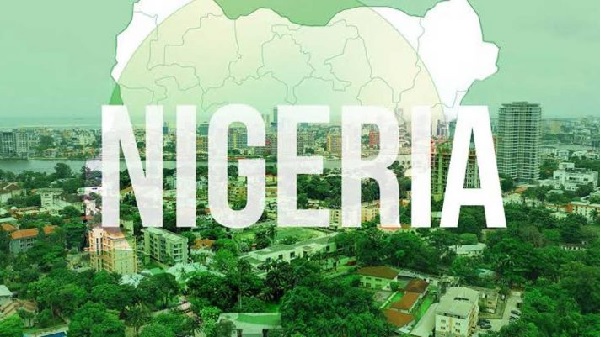Since the amalgamation of the Northern and Southern protectorates in 1914 to form Nigeria, the country still struggles to achieve nationhood. Admittedly, achieving nationhood in such a diverse country like Nigeria which boasts over 250 ethnic groups and more than 500 languages spoken can seem like an arduous task. It is, however, possible for unity in diversity to be attained in Africa’s most populous nation. Read on as we discuss some ways nationhood can be achieved in Nigeria.

How Nigerian can achieve nationhood would be discussed below:
-
Increased Focus on the Economic Development of the Country
One of the suggestions that can help a diverse country like Nigeria achieve nationhood is an increased focus on economic development. When economic development in Nigeria is prioritized, Nigerian citizens from different ethnic groups would have opportunities to improve their standard of living, which in turn, fosters a sense of hope and pride among the population.
Some ways to achieve economic development in Nigeria include but are not limited to investing in infrastructure, creating jobs, and promoting entrepreneurship. Focusing on economic development in Nigeria provides the opportunity for Nigerians to earn a decent living. As a result, Nigerians from diverse ethnic groups will become more invested in the country’s future, thereby promoting nationhood.
-
Promoting Cross-Cultural Understanding of the Diverse Ethnic Groups
Another way that Nigeria can achieve nationhood amidst its diverse ethnic groups is by promoting cultural understanding amongst the various ethnicities that make up the country. This can be achieved through cultural festivals, exchange programs, and media that highlight the diversity of the over 250 ethnic groups in Nigeria.
How cross-cultural understanding and dialogue promote nationhood is that it will break down barriers between the different ethnic groups within the country as it presents the opportunity for Nigerians from different ethnicities to learn about other. This helps to reduce prejudice and discrimination and can help to create a more cohesive society where the component ethnic groups have a greater sense of understanding and appreciation for each other.
-
Modification of the Nigerian Constitution
Modification of the Nigerian Constitution is another suggestion to help achieve nationhood in Nigeria. The 1999 Constitution which is currently in use in Nigeria is militarist in all intents and purposes and does not embody the desire of the diverse people of Nigeria. When the Constitution mirrors the desire of diverse ethnic groups, it helps build trust and confidence in the system, which in turn, is vital for a strong and united country.
For example, modification of the Constitution should contain provisions for conflict resolution as a means of achieving nationhood. In situations where there exist disputes between different ethnic groups, the modified Constitution can provide a process of negotiation and mediation to prevent conflicts from escalating and causing violence. Another modification of the Nigerian Constitution that can help achieve nationhood in Nigeria is that there should be provisions for efficient and effective management of
federally collected revenues.
-
Promotion of a Shared National Narrative
With its diverse ethnic groups numbering over 250, the promotion of a shared national narrative is one way to achieve nationhood in Nigeria. This can be achieved by promoting stories that emphasize the shared history and identity of all Nigerians through education, the media, and other channels. For example, primary and secondary school curricula in Nigeria that promote the shared history and values of Nigeria would help to create a generation of young people who feel a sense of pride and belonging to the nation.
The media, on the other hand, can be used as a channel to promote dialogue and understanding between the different ethnic groups of Nigeria, which could help to address the divisions that exist in the country. Additionally, political and economic reforms that help create a more just and equal society are encouraged to create a sense of national identity and pride. Political and economic reforms also lead to economic growth and development, which can further promote national unity.
-
Improving Security Across Nigeria
Achieving nationhood in Nigeria can be attained by improving security across the country. When the government can provide safety and security for all Nigerians, this could create a feeling of unity and a shared goal of a peaceful and prosperous future. The assurance of the safety of lives and property would make it more likely for Nigerians from diverse ethnic groups to trust one another in terms of trade and commerce.
Improved safety would lead to more cultural exchanges and social exchanges among the various ethnicities that make up Nigeria. As a result, improved security helps to foster a sense of shared identity, as well as increase participation in local government and civic life which can create a sense of shared ownership of the country and its future.
-
Adherence to the Rule of Law
Adherence to the rule of law is one of the ways of achieving nationhood in Nigeria. When the Nigerian legal system is known to be fair and strong, every Nigerian citizen, regardless of their ethnic group can know what to expect and can feel secure in their rights. When the rule of law is adhered to, Nigerians are assured that they can get a fair trial and are more likely to feel like they are part of a larger community. And this is what nationhood entails.
Since adherence to the rule of law implies everybody is subject to the same laws and that are held accountable for their actions, even the government. Also, the government is subject to the rule of law. This means that the citizens can trust they are being treated fairly by the government, and if feelings of marginalisation exist, citizens can seek redress through several channels. Consequently, the rule of law encourages the populace to participate in the political process and engage with their community and this leads to attaining a sense of nationhood.